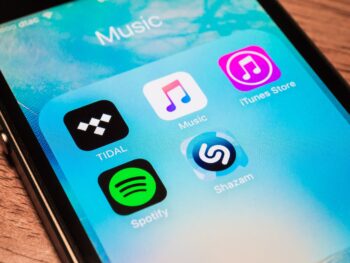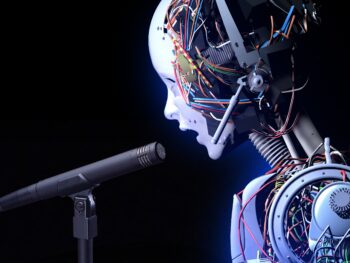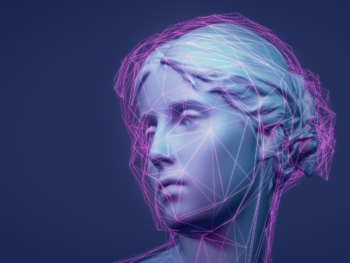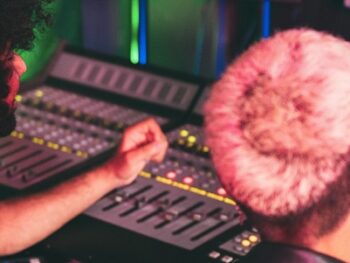In April this year, the internet went crazy for the song “Heart on my Sleeve” which was released on 4 April 2023 and subsequently pulled from major music streaming platforms on 15 April 2023. In the 11 days that the song was available, it amassed around 600,000 streams on Spotify.
Those who have heard the song could be forgiven for believing that the artists supposedly lending their voice to the track are Canadian musical mega stars Drake and The Weekend. However, the two stars had nothing to do with the track itself. In fact, the voices had been generated by AI and sounded so similar to the voices of the pop stars that many outlets and social media users have wrongly attributed the music to the two individuals.
The song itself appears to centre on the break-up of The Weekend and Selena Gomez. The music, lyrics, beat and other backing elements were produced by an individual known only as “@Ghostwriter” and the voices, according to Ghostwriter, were produced by a computer program that had been trained to mimic the musicians’ voices by listening to thousands of hours of their music.
In the 11 days that the song was available on Spotify alone, the approximate 600,000 streams generated Ghostwriter around $1,888 (£1,500) based on Spotify’s lowest royalty rate of $0.003 per stream.
Deepfakes
The use of AI to replicate the voices of famous individuals to a point where the average person cannot tell the difference, not only in music, but in speech programmes has been likened to “Deepfake” images. False images and videos that have been produced (often with the assistance of AI) and are often indistinguishable from true images and videos.
The concern, as has been raised with deepfake images, is the potential for AI technology to be used for malicious purposes (particularly where it can produce images and voices that are so similar to identifiable individuals that they become indistinguishable).
Is there a Breach of IP Rights in AI Generated Voices?
Universal Records, who manage both Drake and The Weekend, and publish both artists’ music through Republic Records objected to the song, citing copyright infringement. The song has officially now been removed from major music services and when searched on YouTube, users are greeted with the message “This video is no longer available due to a copyright claim by Universal Music Group”, however, the song itself has been copied and redistributed by other internet users and those who are curious will not struggle to find it and listen for themselves.
At the moment, intellectual property lawyers are conflicted on how this relates to the law of copyright in particular. The matter itself is certainly not straightforward. The consensus at present is that a “deepfaked” voice, which does not specifically copy a performance, does not infringe copyright and would, in fact, be afforded its own copyright protection. This does, however, raise the concern that no preventative mechanism for the use of deepfaked voices could open the floodgates for fake music to be released with the primary objective of capitalising on and/or tarnishing the brand/reputation of popular artists.
It is the first time in a long time that the law in this area has faced a test on such a complex scale and there does not yet appear to be a clear answer. The emergence of deepfaking has prompted intellectual property lawyers to call for a review of the law to keep up with the rate of technological evolution. One of the concerns raised is the potential for technology to undermine the brands, sounds, and style of artists and it will be for the law to try to address and remedy these issues. With the correct regulation, technology has the ability to augment the creativity of artists, but a balance must be struck between developing and undermining competing rights.
The use of AI to create almost identical voices to those most notable in our society is very new and nobody fully understands how it is going to interact with the law. At the date of writing. neither Drake nor The Weekend have commented on “Heart on my Sleeve”, however, Drake has previously expressed his displeasure via Instagram at his voice being cloned when a fake video appeared which seemed to be him rapping to the Ice Spice track Munch (Feelin’ U). As is the case with emerging technology, we will need to wait and see how the conversation unfolds.
If you have any questions about AI, its uses and/or intersection with creative industries, please get in touch with the BTOBeCreative Team on 0131 222 2939 or email: becreative@bto.co.uk
Jamie Stewart, Trainee Solicitor: jgs@bto.co.uk / 0131 222 2939
Lynn Richmond, Partner lyr@bto.co.uk / 0131 222 2939









 Louboutin v Amazon – If the shoe fits
Louboutin v Amazon – If the shoe fits
Leave a Reply